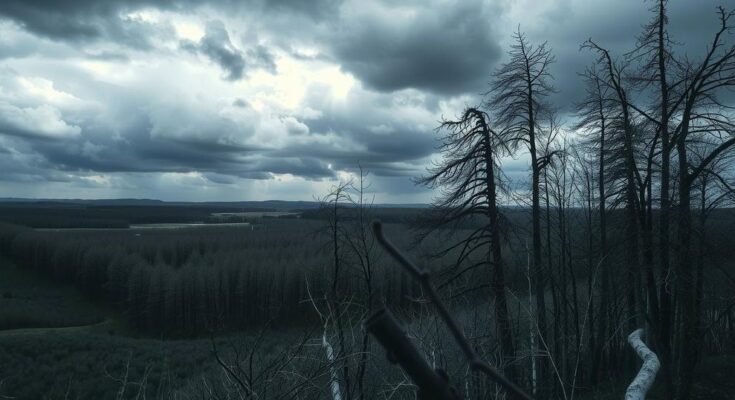Rwandan President Paul Kagame defended his country’s military actions in eastern DRC, where M23 rebels seized Goma, asserting readiness for confrontation. The U.S. and other countries expressed concerns, leading to canceled aid and calls for a ceasefire. The M23’s advance raises fears of wider conflict as neighboring troops become involved. Kagame criticized regional diplomatic failures and responded sharply to South Africa’s allegations.
Rwandan President Paul Kagame has openly criticized concerns regarding Rwanda’s involvement in eastern Democratic Republic of Congo (DRC), where Rwandan-backed M23 rebels have captured Goma, the region’s largest city. He stated that Kigali is ready for “confrontation” if needed. The M23’s advance towards Bukavu marks a significant escalation of a conflict that has persisted for decades.
This recent offensive by the M23 rebels has led to heightened international scrutiny of Rwanda’s actions in DRC. The United States expressed being “deeply troubled” by the fall of Goma, while Germany canceled aid discussions and Britain warned that its annual assistance might be jeopardized. African nations have called for an urgent ceasefire.
The progression of the M23 southwards poses a threat of a broader conflict, potentially involving multiple countries’ military forces. Troops from Burundi, historically at odds with Rwanda, are providing support to Congolese troops in South Kivu. However, Burundi’s military has refrained from commenting on the situation, emphasizing the complexity of regional tensions.
In an emergency summit of the East African Community, Kagame rebuked neighboring countries for failing to prevent the conflict with M23. He questioned the adequacy of diplomatic efforts and underscored the inevitability of the current crisis. Notably, DRC President Felix Tshisekedi was absent from the summit, instead addressing the nation regarding military initiatives to reclaim lost territory.
Kagame responded to South African President Cyril Ramaphosa’s comments, which attributed the surge in violence to M23 and Rwandan forces. Kagame accused South Africa of aiding militias associated with the perpetrators of the 1994 Rwandan genocide, asserting Rwanda’s readiness to confront any threats directly.
After gaining control of Goma, the M23 rebels have begun advancing southward. They encountered resistance from Congolese forces while attempting to seize Nyabibwe, a town crucial for passage to Bukavu. The M23, identified as an ethnic Tutsi-led insurgency with support from Kigali, adds another layer to the longstanding instability in the region.
Rwanda maintains that its military presence in Goma is a defensive strategy against threats posed by Congolese militias, while DRC refutes these claims, accusing Rwanda of exploitation through proxy militias.”
This article discusses the escalating conflict in eastern Democratic Republic of Congo, where Rwandan-backed M23 rebels have intensified their military activities, specifically capturing Goma. President Paul Kagame’s defiance against international criticism is a focal point, as he defends Rwanda’s actions as necessary for national security. The backdrop of historical tensions stemming from the Rwandan genocide of 1994 adds complexity to the current situation.
In summary, the ongoing military actions by M23 rebels in eastern DRC have prompted international criticism toward Rwanda. President Kagame remains resolute, highlighting Rwanda’s position and readiness for confrontation if threatened. This situation not only risks broader regional conflict but also impacts diplomatic relations and humanitarian efforts in the region. The response from various nations reflects the gravity of the crisis unfolding in eastern Congo.
Original Source: www.usnews.com




